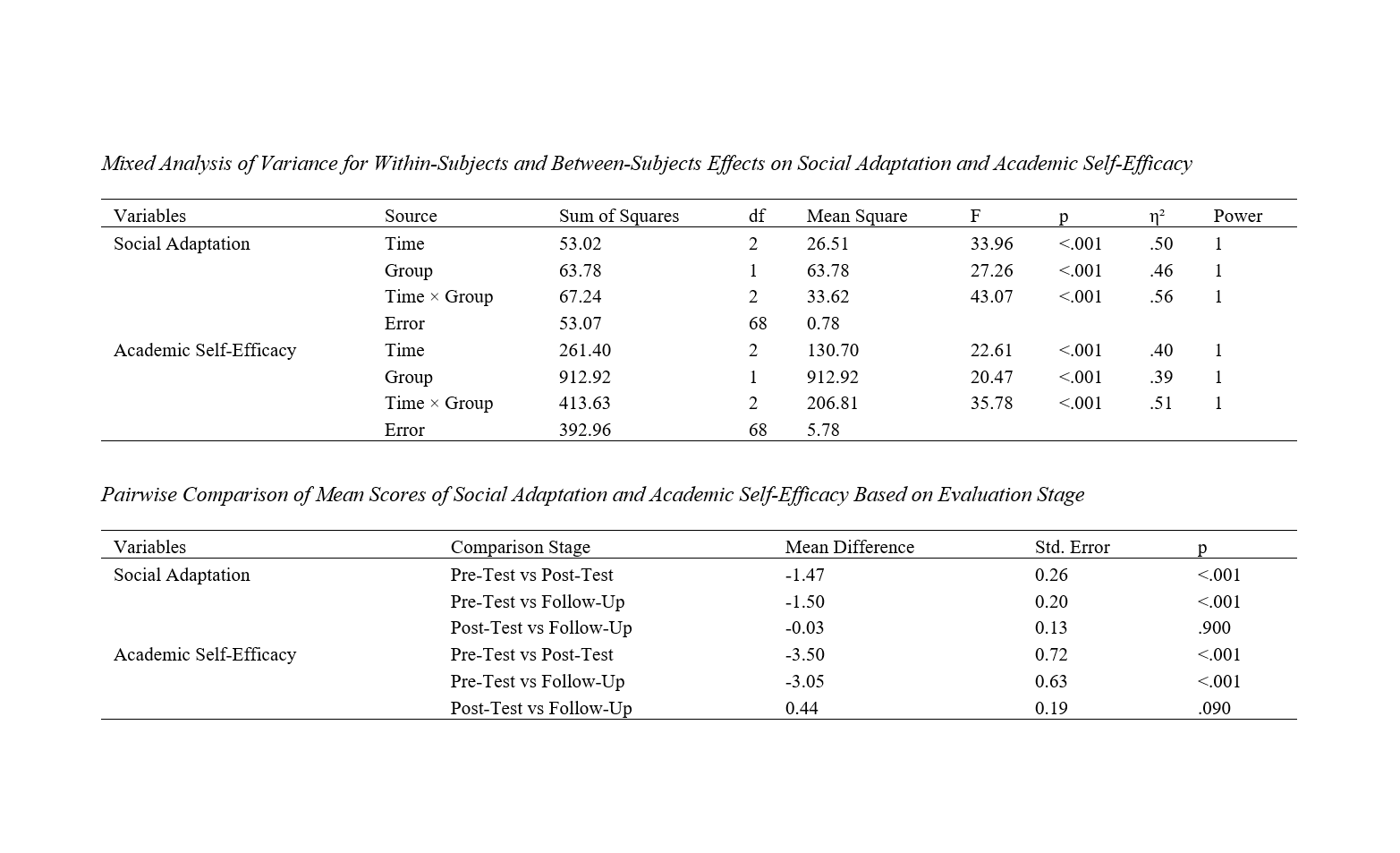Developing a Nonviolent Communication Training Program and Evaluating its Effectiveness on the Social Adaptation and Academic Self-Efficacy of Aggressive Male Students
Keywords:
Nonviolent communication training program, social adaptation, academic self-efficacy, aggressionAbstract
Objective: This study aimed to develop a nonviolent communication training program and evaluate its effectiveness on the social adaptation and academic self-efficacy of aggressive male students.
Methods and Materials: The research method included a qualitative section using thematic analysis with a deductive approach and a quantitative section with a quasi-experimental design, including a pre-test, post-test, control group, and a two-month follow-up period. The statistical population in the qualitative section consisted of articles, books, and dissertations related to nonviolent communication theory, and in the quantitative section, it included aggressive male students in the second grade of elementary school (ages 9 to 12) in the city of Isfahan during the 2023-2024 academic year. A total of 36 aggressive male students were purposefully selected and randomly assigned to experimental and control groups (18 students per group). The experimental group received the nonviolent communication training program over ten 75-minute sessions spanning ten weeks. The Aggression Questionnaire (AQ) (Eysenck & Wilson, 1975), the Social Adaptation Questionnaire (SAQ) (Sinha & Singh, 1993), and the Academic Self-Efficacy Questionnaire (ASEQ) (Jinks & Morgan, 1999) were used in this study. Data were analyzed using mixed analysis of variance with SPSS software version 23.
Findings: The results indicated that the nonviolent communication training program has sufficient content validity according to experts. Additionally, this program significantly impacts the social adaptation (P<0.0001; Eta=0.56; F=43.07) and academic self-efficacy (P<0.0001; Eta=0.51; F=35.78) of aggressive male students.
Conclusion: The nonviolent communication training program can be used as an effective method to improve the social adaptation and academic self-efficacy of aggressive male students.
Downloads

Downloads
Additional Files
Published
Issue
Section
License
Copyright (c) 2024 mahbobeh sadat fadavi (Corresponding Author); Azaam Sobhani najafabadi, Ali Mahdad (Author)

This work is licensed under a Creative Commons Attribution-NonCommercial 4.0 International License.








